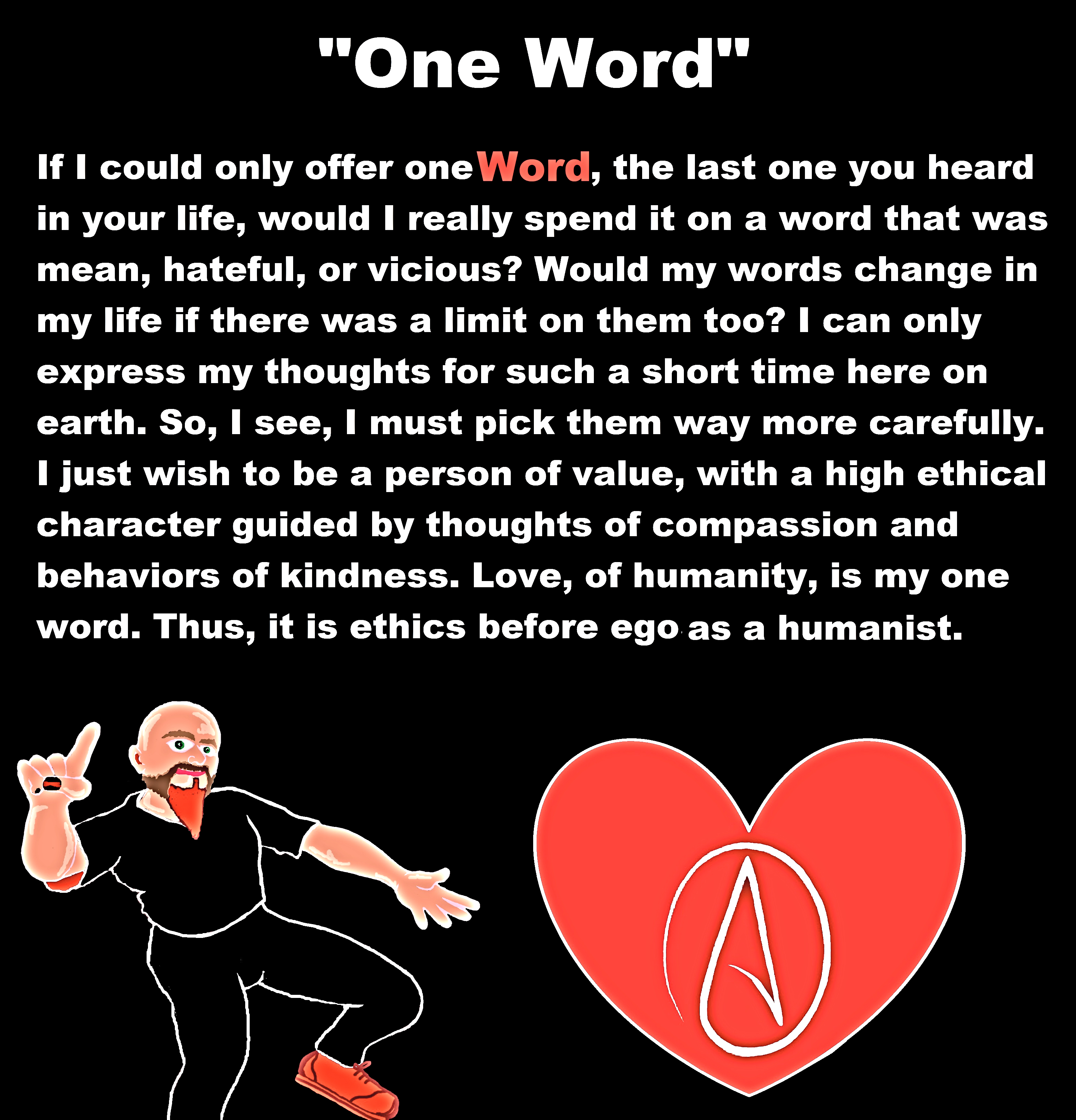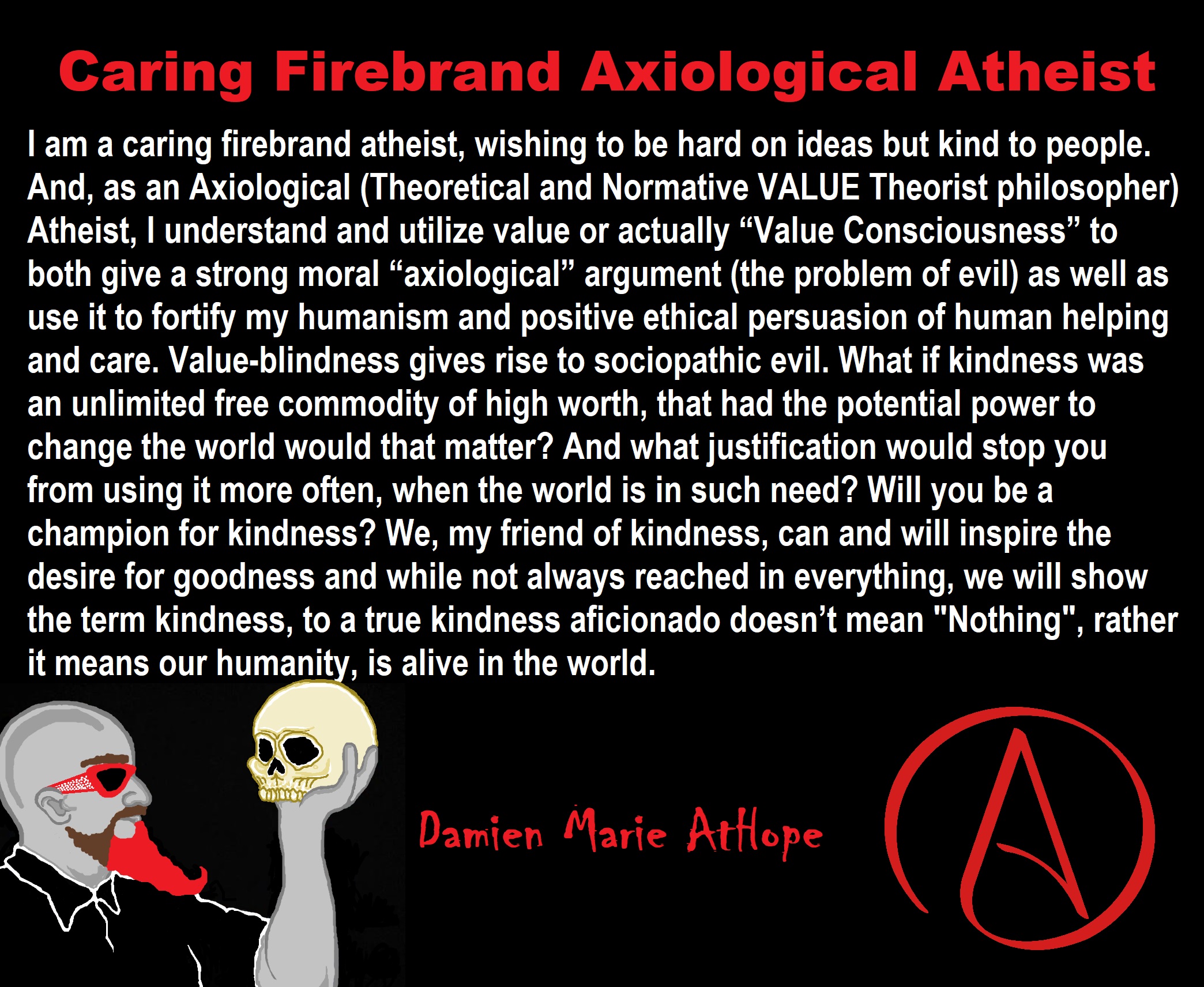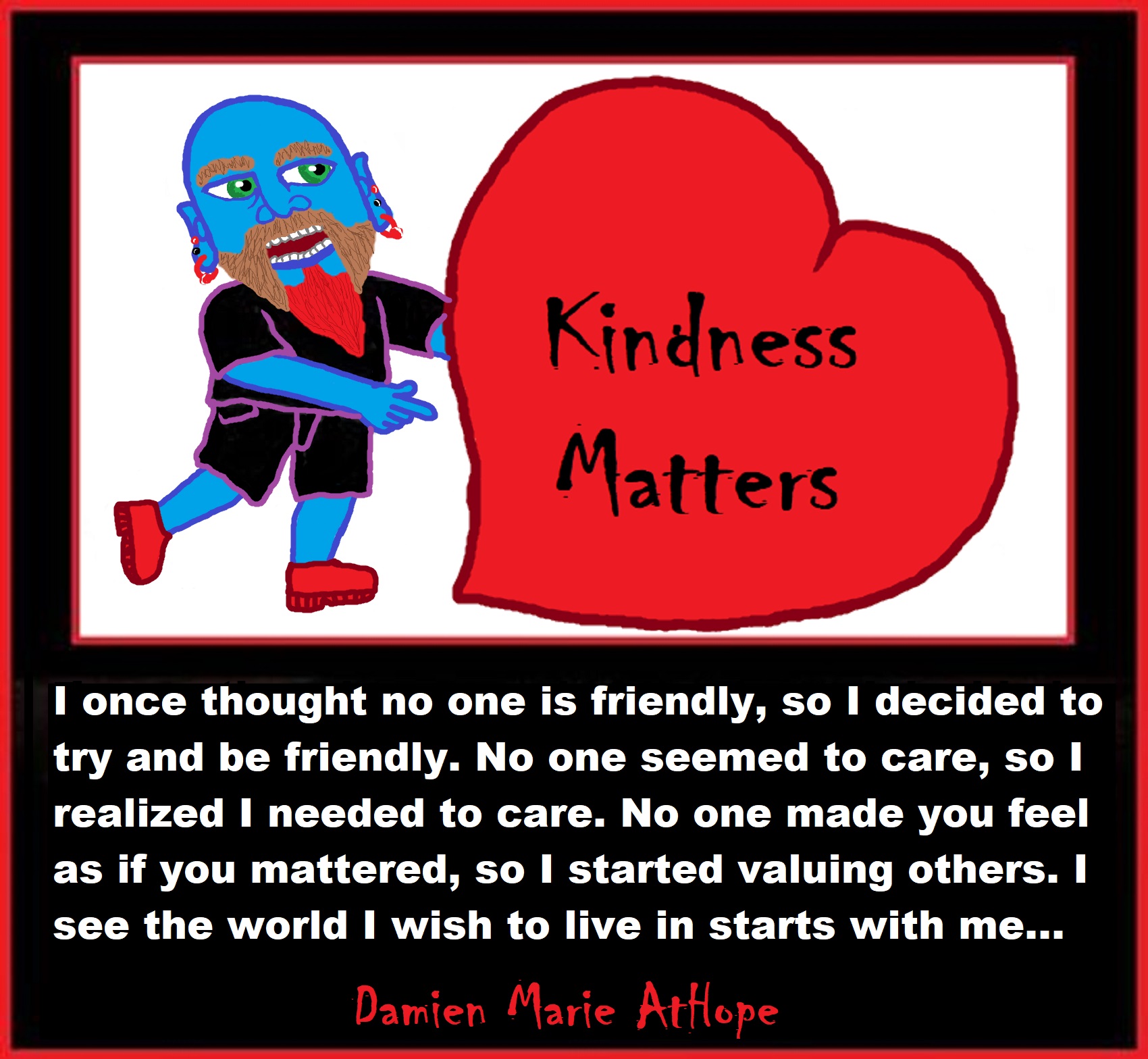
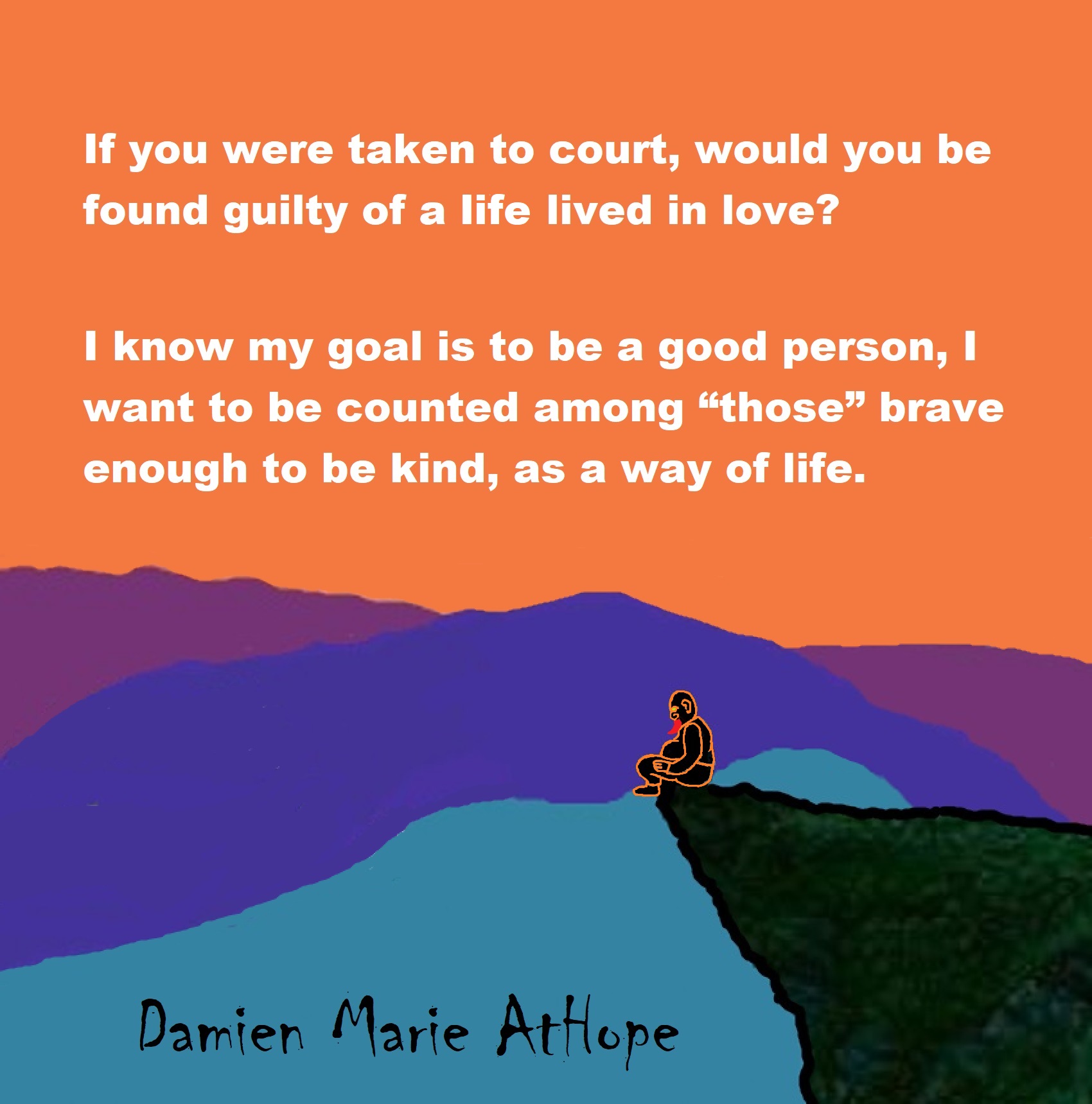
What you are about to read regards “love”, A correspondence between two thinkers,
Jersey Flight and Damien Marie AtHope
*I, Damien offer that love is not one thing but is definable even in romantic love.
Six Types of Love
Eros:
is romantic, passionate, love. In this type of relationship, love is life’s most important thing. A search for physical beauty or an ideal type also typifies this type of love.
Ludus:
is a game-playing or uncommitted love. Lying is part of the game. A person who pursues ludic love may have many conquests but remains uncommitted.
Storge or affection:
is a slow developing, friendship-based loved. People with this type of relationship like to participate in activities together. Often storge results in a long-term relationship in which sex might not be very intense or passionate.
Pragma:
is a pragmatic, practical, mutually beneficial relationship. It may be somewhat unromantic. A person who leans toward this type of relationship may look for a partner at work or where the person is spending time. Sex is likely to be seen as a technical matter needed for producing children, if they are desired.
Mania:
is an obsessive or possessive love, jealous and extreme. A person in love this way is likely to do something crazy or silly, such as stalking.
Agape:
is a gentle, caring, giving type of love, brotherly love, not concerned with the self. It is relatively rare.
One study found that men were more likely to show the ludic type of love, while women were more likely to be storgic or pragmatic.
Another study conducted in two American introductory psychology classes of over 250 students each, the first five types were all familiar to over 80% of the students from their personal experience (their own relationships or people they knew). However, less than 10% of students knew somebody who expressed agape.
Studies of couples happily married for over 30 years showed that couples who rated their marriages as highly satisfactory described their relationship in terms which resembled erotic love more than the other five types. This might be surprising; in view of the earlier-mentioned finding that limerence type relationships tend to flare out quickly among college students. However, it might be the case that long-term relationships that contain both friendship and a passionate spark are more likely to endure and provide satisfaction to both parties than relationships that are low-key and pragmatic.
http://www.intropsych.com/ch16_sfl/six_types_of_love.html
ON THE NATURE OF LOVE
An Exchange between Jersey Flight and Damien Marie Athope
———-JERSEY FLIGHT———-
Love crashes like a wave,
Love subverts,
Love pursues against all reason.
It occurs to me (and god knows I am not ready to give this concession to any subject) that I think of love as something mystical as opposed to scientific. I suppose that love is the closest man can come to mysticism; the closest he can come to the divine. This is because I see love as irrational but powerful. If there is one thing we can assign the category of mysticism it must be that of love (God is not worthy). If there is one subject that defies understanding it must be that of love. I suspect that love is often without reason, which is to say, the reason for love is love itself.
———-DAMIEN ATHOPE———-
We may want love to be mysticism as we don’t want it to be understandable by science but I am here to tell you this is emotionalism as we do understand quite a lot about love but as to your point seems to say, that ability to explain the what is not the same as making the why seem any more reasoned even if the reason is identified.
10 Psychology Studies on love: http://www.spring.org.uk/2014/02/10-psychology-studies-every-lover-should-know.php
10 Research-Based Truths About People in Love: https://www.psychologytoday.com/blog/the-mindful-self-express/201311/10-research-based-truths-about-people-in-love
What is Love? Well, according to some authors, love is defined as a desire to enter, maintain, or expand a close, connected, and ongoing relationship with another person. Considerable evidence supports a basic distinction, first offered in 1978, between passionate love (“a state of intense longing for union with another”) and other types of romantic love, labeled companionate love (“the affection we feel for those with whom our lives are deeply entwined”). The evidence for this distinction comes from a variety of research methods, including psychometric techniques (e.g., factor analysis, multidimensional scaling, and prototype analysis), examinations of the behavioral and relationship consequences of different forms of romantic love, and biological studies, which are discussed in this article. Most work has focused on identifying and measuring passionate love and several aspects of romantic love, which includes two components: intimacy and commitment. Some scholars see companionate love as a combination of intimacy and commitment whereas others see intimacy as the central component, with commitment as a peripheral factor (but important in its own right, such as for predicting relationship longevity). In some studies, trust and caring were considered highly prototypical of love, whereas uncertainty and “butterflies in the stomach” were more peripheral. Passionate and companionate love solves different adaptational problems. Passionate love may be said to solve the attraction problem—that is, for individuals to enter into a potentially long-term mating relationship, they must first identify and select suitable candidates, attract the other’s interest, engage in relationship-building behavior, and then go about reorganizing existing activities and relationships so as to include the other. All of this is effortful, time-consuming, and disruptive. Consequently, passionate love is associated with many changes in cognition, emotion, and behavior. For the most part, these changes are consistent with the idea of disrupting existing activities, routines, and social networks to orient the individual’s attention and goal-directed behavior toward a specific new partner. Sexual desire is often substantially linked to passionate love, although existing evidence suggests that they are empirically and functionally distinguishable. For example, romantic attraction and sexuality involve different brain systems, a contention supported de novo by recent functional magnetic resonance imaging studies. Considerably less effort has been devoted toward understanding the evolutionary significance of the intimacy and commitment aspects of love. However, much evidence indicates that love in long-term relationships is associated with intimacy, trust, caring, and attachment, all factors that contribute to the maintenance of relationships over time. More generally, the term companionate love may be characterized by a communal relationship: a relationship built on mutual expectations that one’s self and a partner will be responsive to each other’s needs. It was speculated that companionate love, or at least the various processes associated with it, is responsible for the noted association between social relatedness and health and well-being. In a recent series of papers, it was claimed that marriage is linked to health benefits. Having noted the positive functions of love, it is also important to consider the dark side. That is, problems in love and love relationships are a significant source of suicides, homicides, and both major and minor emotional disorders, such as anxiety and depression. Love matters not only because it can make our lives better, but also because it is a major source of misery and pain that can make life much worse. One particularly timely prediction is that psychological theories of love are likely to become more biologically informed, in the sense that the psychological and behavioral phenomena associated with love will have clear, comprehensible, and distinguishable neural and hormonal substrates. This will be useful not so much for the intrinsic purpose of identifying the brain and body regions in which love occurs, but rather because the identification of neural and hormonal circuits corresponding to particular experiences and behaviors will allow researchers to sort the various phenomena associated with love into their natural categories. For example, it will be important to further distinguish passionate love from companionate love on the one hand and from lust (i.e., sexual feelings) on the other. This distinction will be important for a key reason: although current evidence strongly suggests that these three forms of love involve different biological systems, different functions, different behaviors, and different consequences, much thinking in both popular culture and in the scientific literature conflates them. It will also be valuable to examine how neural activations of passionate and companionate love evolve in a given relationship over time, corresponding to experiential changes. It is also believed that research will address how culture shapes the experience and expression of love. Although both passionate and companionate love appears to be universal, it is apparent that their manifestations may be moderated by culture-specific norms and rules. Passionate and companionate love have profoundly different implications for marriage around the world, considered essential in some cultures but contra-indicated or rendered largely irrelevant in others. For example, among U.S. college students in the 1960s, only 24% of women and 65% of men considered love to be the basis of marriage, but in the 1980s this view was endorsed by more than 80% of both women and men. And, finally, the authors believe that the future will see a better understanding of what may be the quintessential question about love: how this very individualistic feeling is shaped by experiences in interaction with particular others. https://riordanclinic.org/2012/02/psychological-research-on-love-and-its-influence-in-adult-human-relationships/
———-JERSEY FLIGHT———-
There is no reason in fatal self-sacrifice to promote the well being of another but that of love. What I am ready to concede is that love is a form of caring that transcends reason.
———-DAMIEN ATHOPE———-
Fatal self-sacrifice is a evolutionary motivation of group thinking and evidence of social domestication that happens outside of love all the time both in humans, animals and bugs its nothing mystical at all to me. How we tamed ourselves—and became modern ‘Self-domestication’ turned humans into the cooperative species we are today. http://www.umass.edu/preferen/You%20Must%20Read%20This/Science-2014-Gibbons-405-6.pdf Darwin actually addressed this issue. At first, the characteristic of altruism, the willingness to sacrifice oneself for the seeming good of one’s ethnic or kin group, seemed to him to be at odds with his theory of natural selection. He then realized that this paradox would disappear if he changed his focus from the individual with a good genetic adaptation to the group to which the individual belonged. A single individual with a genetic mutation that is highly desirable and adaptive may still die before reproducing. If a group such as a family, a herd, or a tribe has many individuals who share the adaptation, then the propagation of that gene becomes far more likely. The survival of a genetic adaptation is dependent on the size of the number of individuals who share the genes, not just on the presence or absence of the gene in a single individual. If the individual organism’s sacrifice of itself or its offspring helps a whole group to survive, the genes that predispose it to this behavior are selected for over time. https://www.psychologytoday.com/blog/matter-personality/201108
———-JERSEY FLIGHT———-
There are two readers of this exchange: those in love, and those who merely stand at a distance and analyze what they think they see. I suspect the substance of love is not the analysis, but the experience of love.
Whether or not this greatest of all events; whether or not this greatest of all gifts; whether or not this most powerful of all substances can be explained biologically, makes little contact with the experience of the lover. So far as I know there is no greater force in the universe than that of love. Reducing love to a syllogism or empirical observation seems to miss the authentic transcendence of love. While I do not believe in love as a supernatural thing; I do believe that love is the only thing that comes close to the supernatural, which is merely to speak of the power of love. While your discourse focuses on the biological explanation of love, my exposition is specifically centered on the transcendence of love. And by transcendence I am not referring to metaphysics or invisible forces; I am referring to the power of love in the context of life. Love, like hope, has the quality of transcendence. And I suppose (if we must) this can be explained by the provocation of strong feelings… however, I totally deny that these feelings are merely a figment of the imagination (for God is thus but Love is not). In this sense my dear friend… in the name of greatness, this means love is real! Respectfully yours, Jersey Flight
———-DAMIEN ATHOPE———-
How you refer to love seems to be addressing the complex phenomenology of love. Which is still definable and to me while love is wonderful in many its attachments are natural and I reject all mystical talk as its giving that supernatural way of thinking credibility which to me it has none. To me the only transcendence is to go beyond the limitations of self and try to understand or emotionally experience through empathy the lives of others. It is easy to add all kinds of different types of emotions labeling them under love as a do everything word but is this reasoning is such thinking to make it something it may not be or do we just add that which we like or are all things justified under love? What emotions belong under the table love do we have a standard or are we doing special pleading to keep love magical-seeming? If so why? If we make it just another valued emotion is it less valuable? Not to me. Real-world experience(s), to me, has/have value, not needing mystical anything and not losing anything by being explainable. What do you as the reader think? The look of love? What if someone asked you to think about what love looks like, what would be your answer? If you where to think about what love looks like, wouldn’t it be a growth exercise meant to build self enlightenment and self truth? Do you feel I or any one can define your truth about love? If someone defined your truth about love for you, would you really own it? Wouldn’t it make more sense instead for me to broaden your ability to see the question, “what love looks like”? First, you would likely want to think, does a question like this of such a personal relevance have right answers? Next, you would likely want to start thinking on what love is, would we look at are fallible behavior or some philosophical definition? If we look at our relations with others, could we be convicted of loving? If we wish for a philosophical definition of love, what realities does it hold in our real lives? Is love a feeling or a behavior? If we look at love as a feeling, what emotional substance does it stem from? If we look at love as behavior, is it fixed in the behaviors of others?
May the actions of my life be written deep with the poetry of my humanity.
I am a caring firebrand atheist, wishing to be hard on ideas but kind to people. And, as an Axiological (Theoretical and Normative VALUE Theorist philosopher) Atheist, I understand and utilize value or actually “Value Consciousness” to both give a strong moral “axiological” argument (the problem of evil) as well as use it to fortify my humanism and positive ethical persuasion of human helping and care. Value-blindness gives rise to sociopathic evil.
A Rational Mind Values Humanity
A truly rational mind sees the need for humanity, as they too live in the world and see themselves as they actually are an alone body in the world seeking comfort and safety. Thus, see the value of everyone around them, as they too are the same and therefore, rationally as well a humanistically, we should work for this humanity we are part of. Moreover, we simply can either dwell in or help its flourishing (the humanity we are part of), as we are all in a metaphoric way, are in the hands of each other and communally need each other. We rise by helping each other and we may fail if we keep going as hurtful as humans too often are to each other. May we be good humans. We can be builders of life or its destruction. The person is political so the actions of my life are the expression of my political values even before I tell you what brand I may claim. We are not our past, though we are bound to it. We are also not our future self yet. So, just be the best you in the here and now. May the actions of my life be written deep with the poetry of my humanity. What do your actions say?
I am a high thinking primate, just trying to live an honorable life, being of service to others, and I wish as a life’s mission to be a kindness aficionado. And, I like to contemplate humans, humanity, and human flourishing.
My core definition of Humanism,is that humans can solve human problems by human means. I am not saying other things can’t or shouldn’t be added to it but to me, a definition of humanism must always contain something coherent to such a thinking or not contradict such as I have offered. Thus, why it is appropriate to say “good without god” when one is a humanist.
Reject the Weakness of Anger and Open to the Strength of Kindness.
I wish to be more than the weakness of anger and instead with open arms of love welcome and support kindness as a way of life, not just a thing I do if convent. To me, it is almost never deserved rather it’s a gift. How beautiful is kindness not earned? Well, in my personal case at 17 when a thoughtful person showed me undeserved kindness and in my case it was life-changing. This kindness gift as often as I can as people matter. I wish to add value to the world and send out kindness to the world wishing to promote human flourishing as much as I can and we flourish best in acceptance, understanding, and support, may I be a good human I would be proud to be inspired by. I am wise realizing the wisest thing I have ever done was be kind, even though for me it has been so hard and I am proud to say I am a good human who strives to be kind. Character is not something you get by accident. Just like caring for humanity should not be something you only do if it is not to hard or support equality if it’s convenient. One makes a choice to champion what is right because it is right, knowing that to do so will take hard work and one is proud to do so because they have character. I see a care for humanity as an honor for the direct part I play in it.
May I be a kindness aficionado…
Even when I am debating people who are aggressive, I don’t generally wish to be aggressive back not for them but for the person I want to be. I do sometimes fail at this as I am not always as great at emotional intelligence as I would like to be. Ideally, I would be stoic but I am a hot head and that is something I am constantly striving for as I don’t want to abuse others even with words. I don’t try to make others look bad. I want to help others. I am intelligent and could be mean but I am also very thoughtful as well as open by nature, I also strive to be wise. Thus, I wish to be kind to others as much as I can, even those who are unkind to me, as I wish to be such a bright light of kindness that it can change lives and that is so valuable to me. I don’t want to be their leader I wish to inspire them to be their own leader and thus I see I must assist others not to attack others. I am that freak of nature, a power from the anti-power crusaders, warring against the power dynamic to return it back where it belongs- the hands of the people. I am a free-thinking invader into the shell of malignancy infecting humanity which strangles reason out of the world. A proud anarchy theorist, I breathe the fire of the heathens, a thought revolutionary and mental freedom fighter. I am a humanist atheist who desires a better world for us all, one that is kinder, more just, and more rational in its pursuits. I am the “one” you have been waiting for I am will to power, a deep thought so true it has taken flight to the lofty aspirations dreamed for and a care transmitted to offer hope to humanity I believe in you and will strive to champion you with all I have for you are so worthy…
The eyes of the world predicted my failure but here I am, I am a survivor, No longer do I hide my face, I no longer fear a fall from your grace for I find my courage plain as day in the human race, may I be a good human. May I put truth above all and valiantly thrust a crusade or truth and caring, which will help show love can and will in the end if only in my black heart so often close to that deadman’s plank. I am a fighter, I don’t need you to save me, I don’t need your empty claims of magic in the world, a stumbling block to many, yet, I am no longer one of them, I am will to power. Say the truth plainly don’t allow pretend but do so with a caring desire to teach as one would to a friend. May I be a caring firebrand atheist. One, with an awakened humanity fully alive in my humanist heart, Desiring to Demonstrate my humanitarianism as I fully stand up for truth as a reality as well as kindness as all reality revolutionaries should, strongly speaking what is right as the truth is not pretended. I am bound by the limitations we all face but may I bravely be a good human past it all…
Kindness is not some act I try to do, it is a way of life I strive to follow. Similarly to how one’s character is not in a single thing done but a reflection of who one is. Just like one’s value is more in whom they are as a whole than only limited to a single event or expression. I once thought no one is friendly, so I decided to be a friend. No one seemed to care, so I realize I needed to care. No one made you feel as if you mattered, so I started valuing others. I see the world I wish to live in starts with me.
Kindness, you are my friend, how I long for your embrace, the gentleness of your touch and the beauty of your face. Kindness my breath of hope made anew, how I am inspired by you and flourish under your gaze. Kindness my teacher of compassion, my path in life, how I desire to be like you, by your caring I was made into you. Kindness my sturdy tower, my reprieve in life in the final hour.
Be thoughtful in what you say, because, words once released have power, due to them being a method of transferring feelings not just ideas. Words are world builders and dramatic destructors. They can build mental castles to protect or dungeons to torment. May I strive to be kind to others with my words. And, I think back on my life, it’s not the times I was the most selfish but the times I was kind, that brighten my life. May I now make an even stronger effort to do so in all I do, as it’s so valuable to an enriched wellbeing in life.
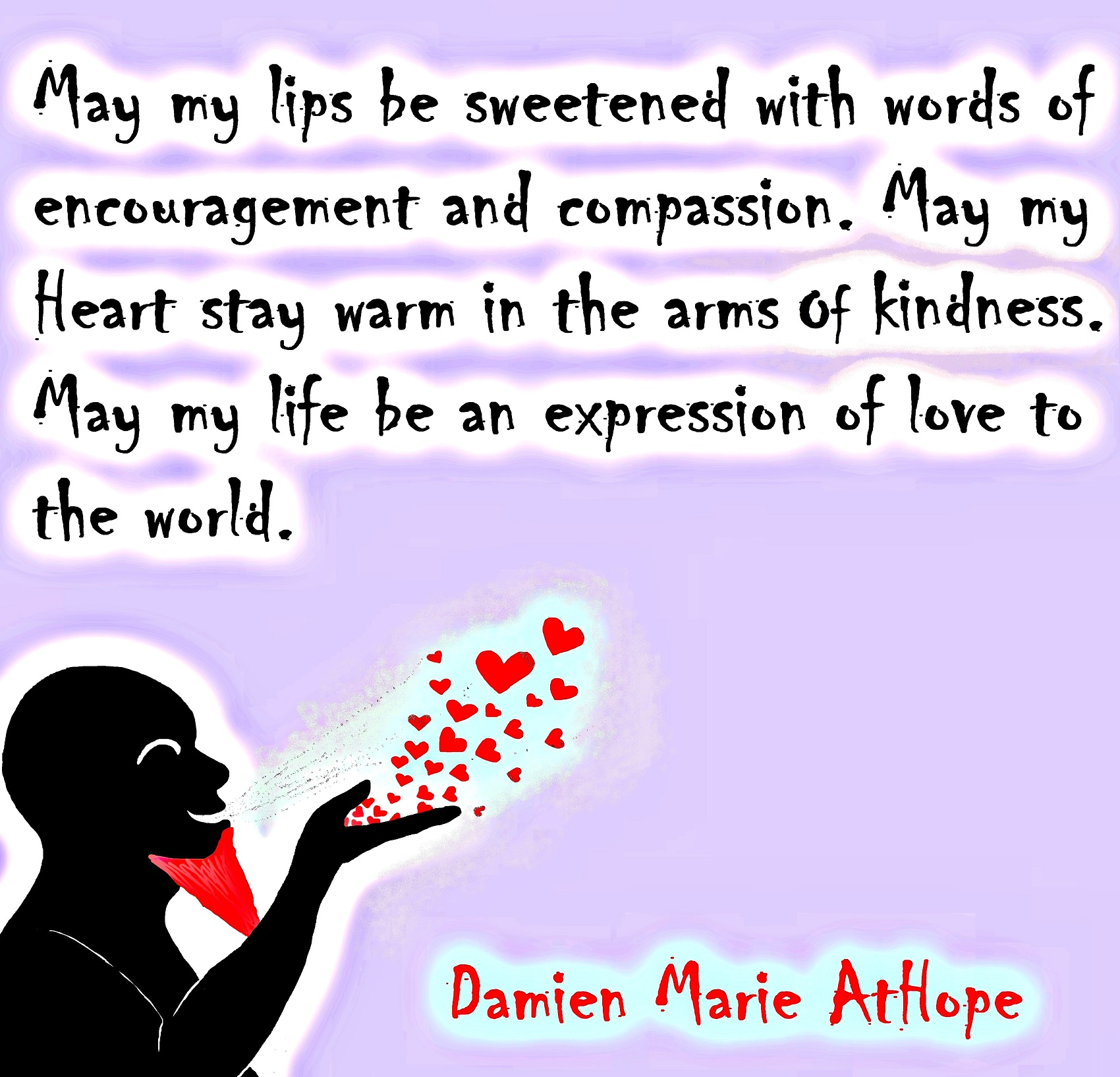
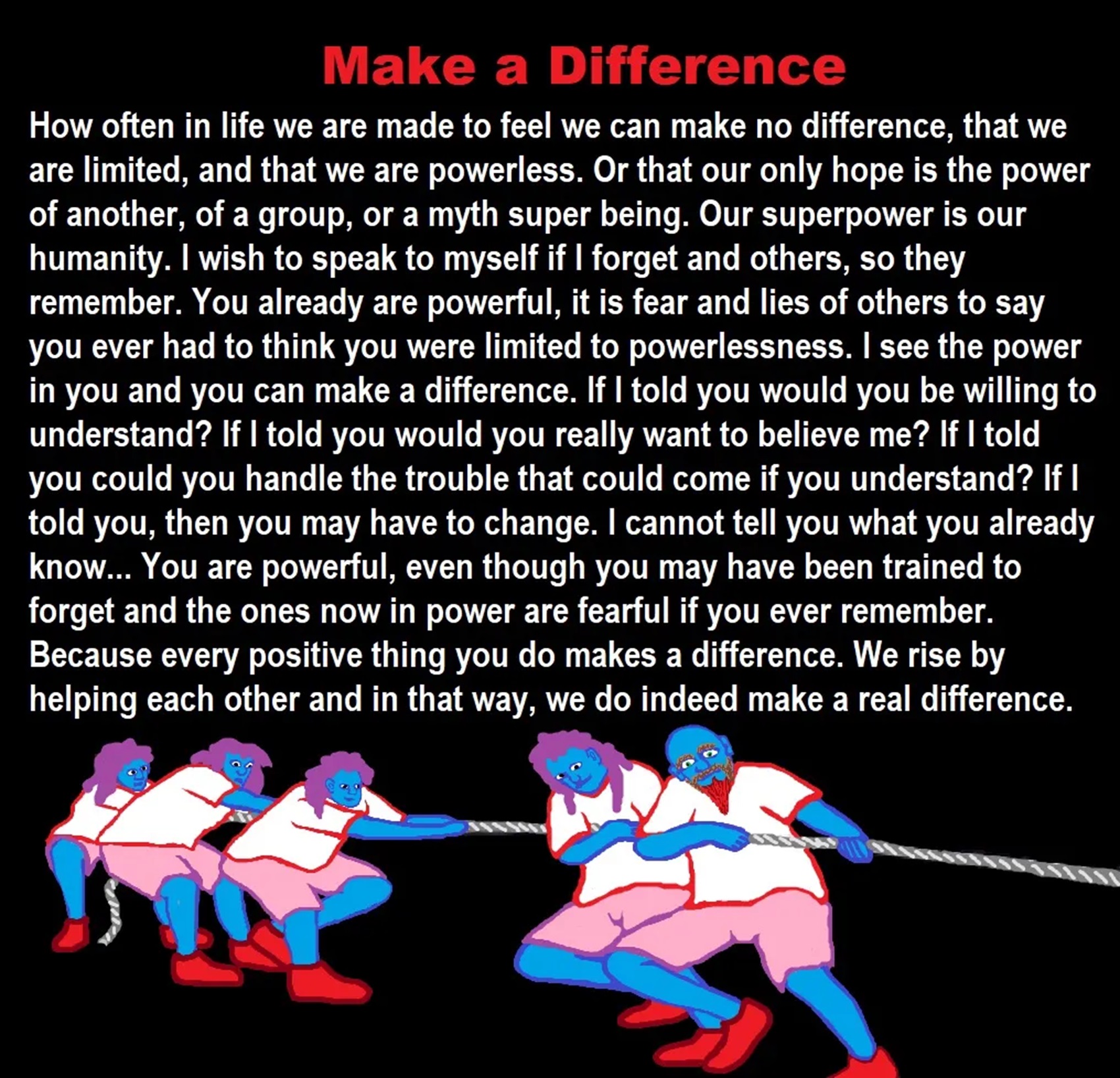
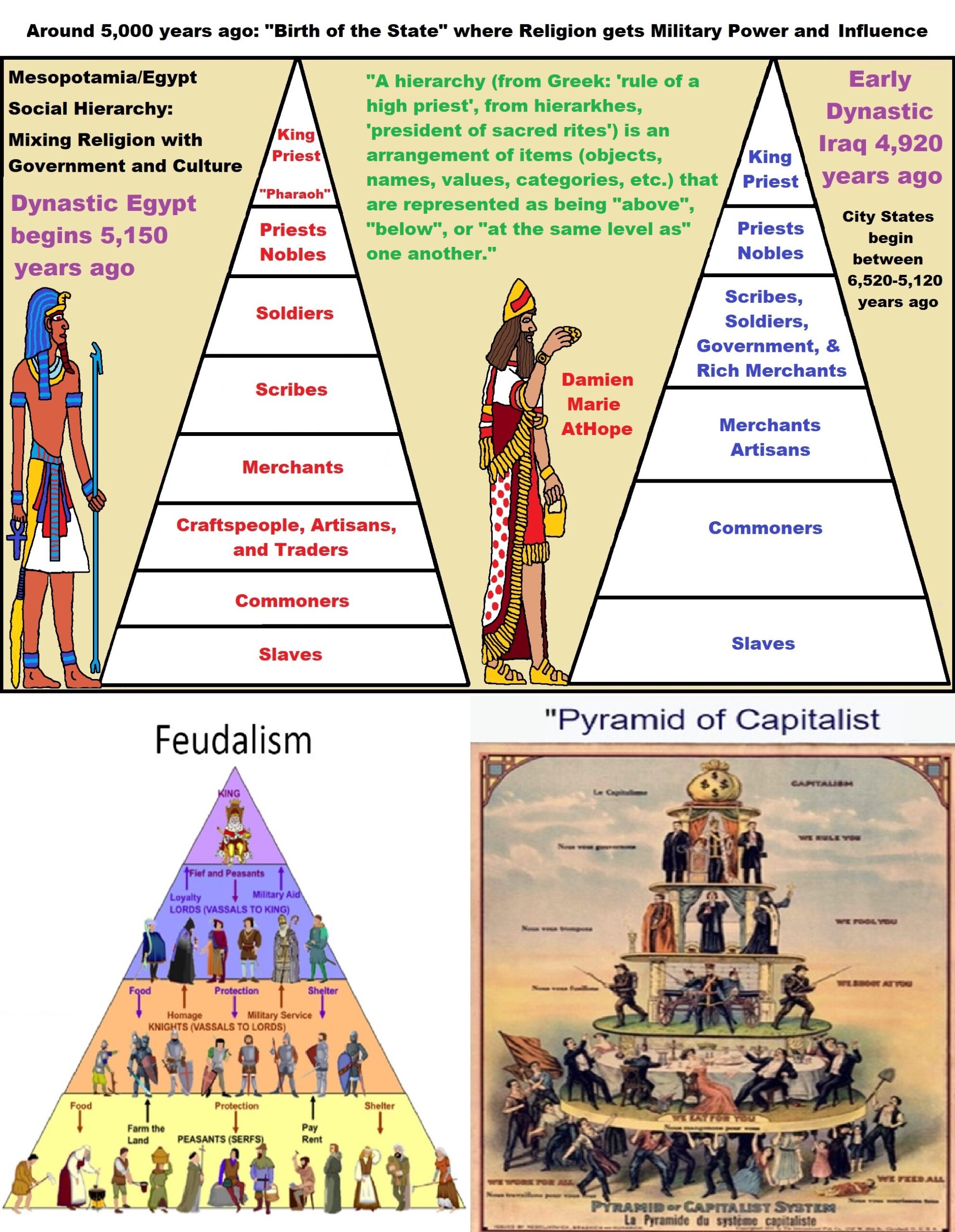


While hallucinogens are associated with shamanism, it is alcohol that is associated with paganism.
The Atheist-Humanist-Leftist Revolutionaries Shows in the prehistory series:
Show two: Pre-animism 300,000 years old and animism 100,000 years old: related to “Anarchism and Socialism”
Show tree: Totemism 50,000 years old: related to “Anarchism and Socialism”
Show four: Shamanism 30,000 years old: related to “Anarchism and Socialism”
Show five: Paganism 12,000 years old: related to “Anarchism and Socialism”
Show six: Emergence of hierarchy, sexism, slavery, and the new male god dominance: Paganism 7,000-5,000 years old: related to “Anarchism and Socialism” (Capitalism) (World War 0) Elite and their slaves!
Prehistory: related to “Anarchism and Socialism” the division of labor, power, rights, and recourses: VIDEO
Pre-animism 300,000 years old and animism 100,000 years old: related to “Anarchism and Socialism”: VIDEO
Totemism 50,000 years old: related to “Anarchism and Socialism”: VIDEO
Shamanism 30,000 years old: related to “Anarchism and Socialism”: VIDEO
Paganism 12,000 years old: related to “Anarchism and Socialism” (Pre-Capitalism): VIDEO
Paganism 7,000-5,000 years old: related to “Anarchism and Socialism” (Capitalism) (World War 0) Elite and their slaves: VIEDO
Paganism 5,000 years old: progressed organized religion and the state: related to “Anarchism and Socialism” (Kings and the Rise of the State): VIEDO
Paganism 4,000 years old: related to “Anarchism and Socialism” (First Moralistic gods, then the Origin time of Monotheism): VIEDO
I do not hate simply because I challenge and expose myths or lies any more than others being thought of as loving simply because of the protection and hiding from challenge their favored myths or lies.
The truth is best championed in the sunlight of challenge.
An archaeologist once said to me “Damien religion and culture are very different”
My response, So are you saying that was always that way, such as would you say Native Americans’ cultures are separate from their religions? And do you think it always was the way you believe?
I had said that religion was a cultural product. That is still how I see it and there are other archaeologists that think close to me as well. Gods too are the myths of cultures that did not understand science or the world around them, seeing magic/supernatural everywhere.
I personally think there is a goddess and not enough evidence to support a male god at Çatalhöyük but if there was both a male and female god and goddess then I know the kind of gods they were like Proto-Indo-European mythology.
This series idea was addressed in, Anarchist Teaching as Free Public Education or Free Education in the Public: VIDEO
Our 12 video series: Organized Oppression: Mesopotamian State Force and the Politics of power (9,000-4,000 years ago), is adapted from: The Complete and Concise History of the Sumerians and Early Bronze Age Mesopotamia (7000-2000 BC): https://www.youtube.com/watch?v=szFjxmY7jQA by “History with Cy“
Show #1: Mesopotamian State Force and the Politics of Power (Samarra, Halaf, Ubaid)
Show #2: Mesopotamian State Force and the Politics of Power
Show #3: Mesopotamian State Force and the Politics of Power (Uruk and the First Cities)
Show #4: Mesopotamian State Force and the Politics of Power (First Kings)
Show #5: Mesopotamian State Force and the Politics of Power (Early Dynastic Period)
Show #6: Mesopotamian State Force and the Politics of Power
Show #7: Mesopotamian State Force and the Politics of Power (Sargon and Akkadian Rule)
Show #9: Mesopotamian State Force and the Politics of Power (Gudea of Lagash and Utu-hegal)
Show #12: Mesopotamian State Force and the Politics of Power (Aftermath and Legacy of Sumer)

The “Atheist-Humanist-Leftist Revolutionaries”
Cory Johnston ☭ Ⓐ Atheist Leftist @Skepticallefty & I (Damien Marie AtHope) @AthopeMarie (my YouTube & related blog) are working jointly in atheist, antitheist, antireligionist, antifascist, anarchist, socialist, and humanist endeavors in our videos together, generally, every other Saturday.
Why Does Power Bring Responsibility?
Think, how often is it the powerless that start wars, oppress others, or commit genocide? So, I guess the question is to us all, to ask, how can power not carry responsibility in a humanity concept? I know I see the deep ethical responsibility that if there is power their must be a humanistic responsibility of ethical and empathic stewardship of that power. Will I be brave enough to be kind? Will I possess enough courage to be compassionate? Will my valor reach its height of empathy? I as everyone, earns our justified respect by our actions, that are good, ethical, just, protecting, and kind. Do I have enough self-respect to put my love for humanity’s flushing, over being brought down by some of its bad actors? May we all be the ones doing good actions in the world, to help human flourishing.
I create the world I want to live in, striving for flourishing. Which is not a place but a positive potential involvement and promotion; a life of humanist goal precision. To master oneself, also means mastering positive prosocial behaviors needed for human flourishing. I may have lost a god myth as an atheist, but I am happy to tell you, my friend, it is exactly because of that, leaving the mental terrorizer, god belief, that I truly regained my connected ethical as well as kind humanity.
Cory and I will talk about prehistory and theism, addressing the relevance to atheism, anarchism, and socialism.
At the same time as the rise of the male god, 7,000 years ago, there was also the very time there was the rise of violence, war, and clans to kingdoms, then empires, then states. It is all connected back to 7,000 years ago, and it moved across the world.
Cory Johnston: https://damienmarieathope.com/2021/04/cory-johnston-mind-of-a-skeptical-leftist/?v=32aec8db952d
The Mind of a Skeptical Leftist (YouTube)
Cory Johnston: Mind of a Skeptical Leftist @Skepticallefty
The Mind of a Skeptical Leftist By Cory Johnston: “Promoting critical thinking, social justice, and left-wing politics by covering current events and talking to a variety of people. Cory Johnston has been thoughtfully talking to people and attempting to promote critical thinking, social justice, and left-wing politics.” http://anchor.fm/skepticalleft
Cory needs our support. We rise by helping each other.
Cory Johnston ☭ Ⓐ @Skepticallefty Evidence-based atheist leftist (he/him) Producer, host, and co-host of 4 podcasts @skeptarchy @skpoliticspod and @AthopeMarie
Damien Marie AtHope (“At Hope”) Axiological Atheist, Anti-theist, Anti-religionist, Secular Humanist. Rationalist, Writer, Artist, Poet, Philosopher, Advocate, Activist, Psychology, and Armchair Archaeology/Anthropology/Historian.
Damien is interested in: Freedom, Liberty, Justice, Equality, Ethics, Humanism, Science, Atheism, Antiteism, Antireligionism, Ignosticism, Left-Libertarianism, Anarchism, Socialism, Mutualism, Axiology, Metaphysics, LGBTQI, Philosophy, Advocacy, Activism, Mental Health, Psychology, Archaeology, Social Work, Sexual Rights, Marriage Rights, Woman’s Rights, Gender Rights, Child Rights, Secular Rights, Race Equality, Ageism/Disability Equality, Etc. And a far-leftist, “Anarcho-Humanist.”
I am not a good fit in the atheist movement that is mostly pro-capitalist, I am anti-capitalist. Mostly pro-skeptic, I am a rationalist not valuing skepticism. Mostly pro-agnostic, I am anti-agnostic. Mostly limited to anti-Abrahamic religions, I am an anti-religionist.
To me, the “male god” seems to have either emerged or become prominent around 7,000 years ago, whereas the now favored monotheism “male god” is more like 4,000 years ago or so. To me, the “female goddess” seems to have either emerged or become prominent around 11,000-10,000 years ago or so, losing the majority of its once prominence around 2,000 years ago due largely to the now favored monotheism “male god” that grow in prominence after 4,000 years ago or so.
My Thought on the Evolution of Gods?
Animal protector deities from old totems/spirit animal beliefs come first to me, 13,000/12,000 years ago, then women as deities 11,000/10,000 years ago, then male gods around 7,000/8,000 years ago. Moralistic gods around 5,000/4,000 years ago, and monotheistic gods around 4,000/3,000 years ago.
To me, animal gods were likely first related to totemism animals around 13,000 to 12,000 years ago or older. Female as goddesses was next to me, 11,000 to 10,000 years ago or so with the emergence of agriculture. Then male gods come about 8,000 to 7,000 years ago with clan wars. Many monotheism-themed religions started in henotheism, emerging out of polytheism/paganism.

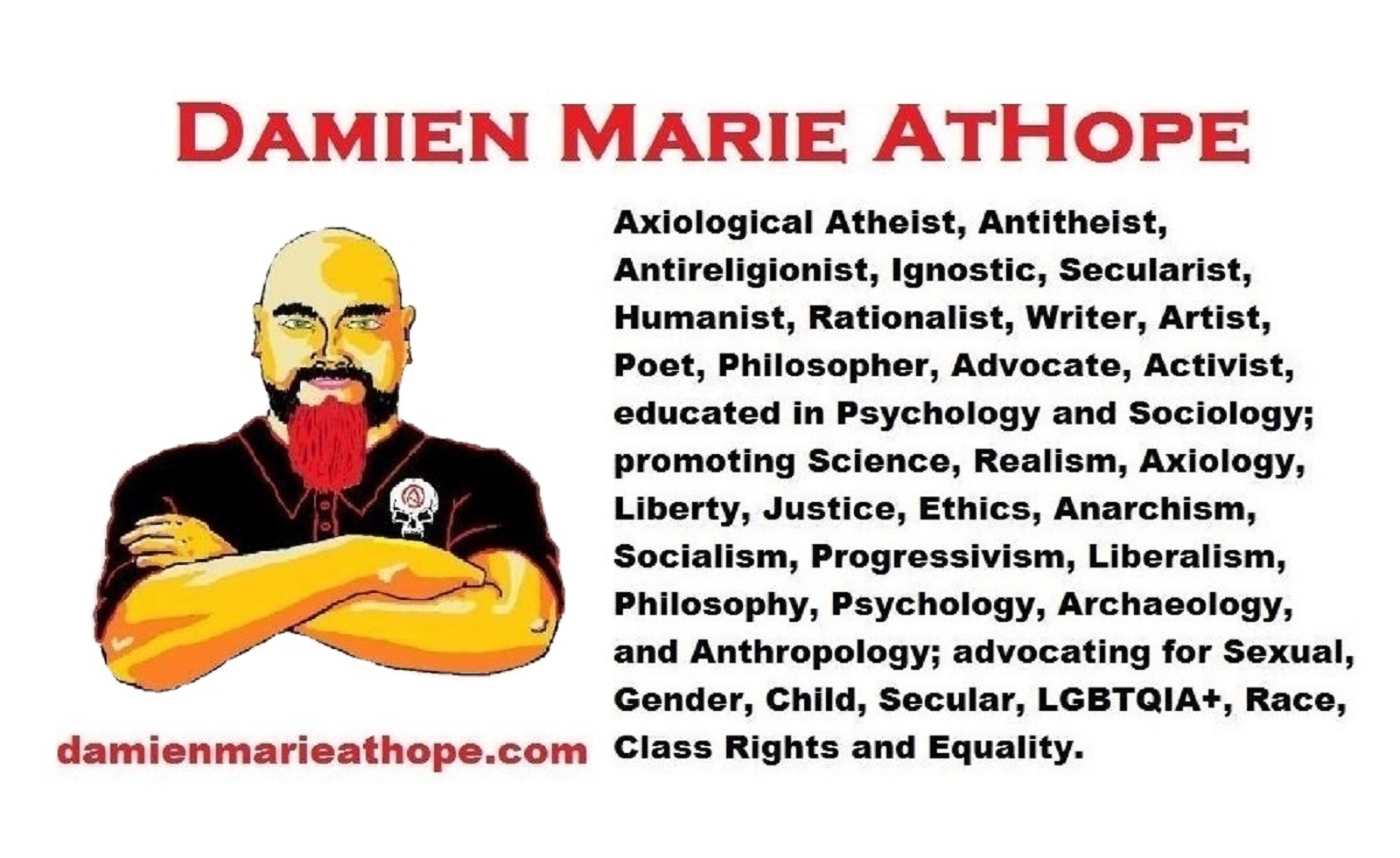
Damien Marie AtHope (Said as “At” “Hope”)/(Autodidact Polymath but not good at math):
Axiological Atheist, Anti-theist, Anti-religionist, Secular Humanist, Rationalist, Writer, Artist, Jeweler, Poet, “autodidact” Philosopher, schooled in Psychology, and “autodidact” Armchair Archaeology/Anthropology/Pre-Historian (Knowledgeable in the range of: 1 million to 5,000/4,000 years ago). I am an anarchist socialist politically. Reasons for or Types of Atheism
My Website, My Blog, & Short-writing or Quotes, My YouTube, Twitter: @AthopeMarie, and My Email: damien.marie.athope@gmail.com

